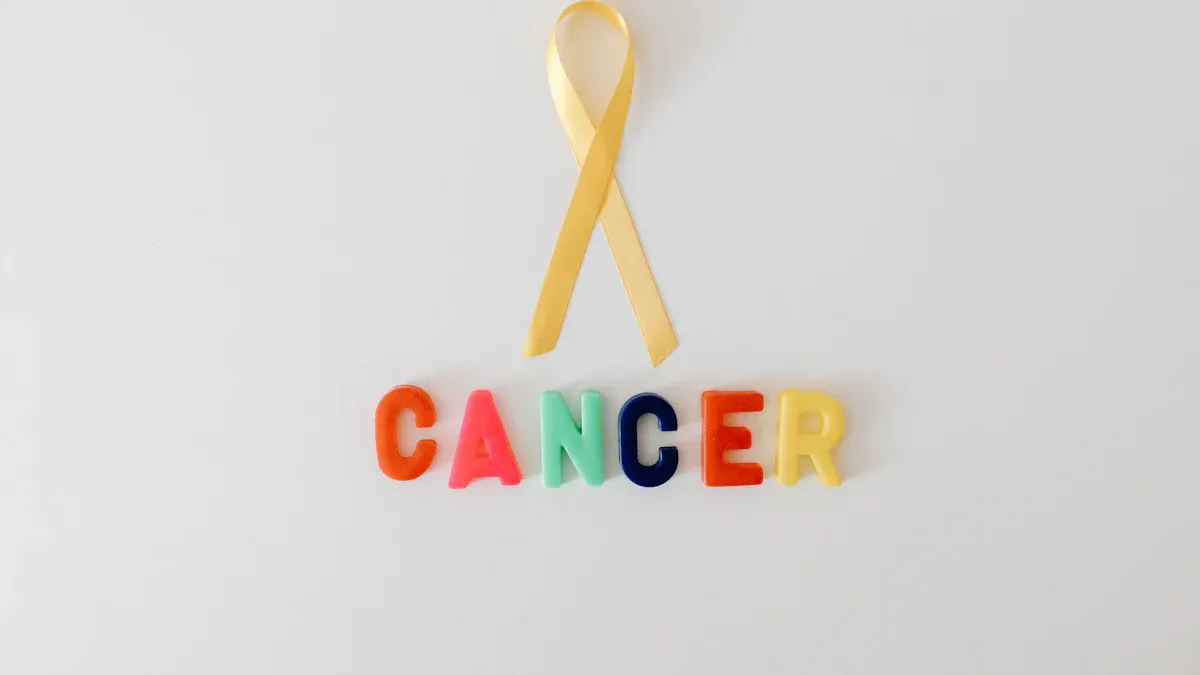Top Tips for Finding Reliable Cancer Information Online

Finding reliable cancer information online is essential for making informed health decisions. Every year, organizations like the American Cancer Society and CDC provide critical data on cancer cases, deaths, and disparities. This information helps people understand trends and prevention strategies. However, misinformation can lead to harmful outcomes. Studies show that one in three popular articles about common cancers contains false claims, with 77% of these being potentially harmful. To protect yourself, you need a guide to navigating cancer information: what to trust and how to verify it.
Key Takeaways
Use websites ending in .gov, .edu, or .org for trusted info.
Check the author's background to see if they are an expert.
Find resources that use studies reviewed by other scientists.
Watch out for words like 'miracle cure' as they may be false.
Talk to your doctor to confirm online info and make good choices.
A Guide to Navigating Cancer Information: What to Trust

Identifying Trustworthy Websites
Focus on .gov, .edu, and .org domains
When searching for cancer information, start by examining the website's domain. Websites ending in .gov, .edu, and .org are generally more reliable. Government websites like the National Cancer Institute (cancer.gov) and educational institutions often provide accurate, research-backed information. These domains prioritize public health over profit, making them trustworthy sources.
Commercial websites, on the other hand, may have biases due to financial motives. Always approach these with caution. Look for clear contact information and a stated purpose on the site. This transparency helps you determine if the source is credible.
Trusted organizations like the National Cancer Institute and American Cancer Society
Organizations such as the National Cancer Institute and the American Cancer Society are excellent starting points. They offer evidence-based resources, including clinical trial data and prevention strategies. These nonprofits focus on patient education and support, ensuring you receive accurate and up-to-date information.
Verifying Author Credentials
Importance of expert-reviewed content
Expert-reviewed content ensures the information you read is accurate and trustworthy. Reliable websites disclose the credentials of their authors or reviewers. This transparency helps filter out misleading claims. For example, a licensed oncologist reviewing an article adds credibility to the content.
How to check author qualifications
To verify an author's qualifications, look for their professional background. Are they a doctor, researcher, or healthcare professional? Reliable sources often include this information in the "About Us" or "Author" sections. Checking these details is as important as consulting a licensed pharmacist for medication advice. It ensures the information you rely on is accurate and safe.
Prioritizing Evidence-Based Resources
Why government and nonprofit organizations are reliable
Government and nonprofit organizations base their information on peer-reviewed research and clinical trials. These sources aim to educate and support the public, not to sell products. This focus makes them more reliable than commercial websites.
Examples of evidence-based cancer information sources
Several trusted platforms provide evidence-based cancer information:
MedlinePlus: Offers accessible health information from the National Institutes of Health.
ClinicalTrials.gov: Shares details about ongoing clinical studies.
Cancer.net: Provides up-to-date resources from the American Society of Clinical Oncology.
American Cancer Society: Focuses on cancer prevention and treatment.
Triage Cancer: Helps patients navigate cancer-related challenges.
These sources ensure you access accurate, research-backed information to make informed decisions.
Evaluating the Credibility of Cancer Information
Checking for Scientific Backing
Peer-reviewed studies and references
When evaluating cancer information, always check if it is based on peer-reviewed studies. Peer-reviewed research undergoes rigorous evaluation by experts before publication. This process ensures the findings are credible and reliable. For example, clinical trials with large participant groups often provide the most trustworthy data. These trials are assessed for reproducibility and are published in respected journals. According to Justice, this structured approach ensures the information you rely on is scientifically sound.
Dr. Chou's study highlights the dangers of misinformation, especially on social media. False claims can mislead individuals and negatively impact their health decisions. By focusing on sources that reference peer-reviewed studies, you can avoid these risks and make informed choices.
Avoiding anecdotal or unverified claims
Be cautious of information based on personal stories or unverified claims. Anecdotes may seem convincing but lack scientific evidence. Reliable sources will always cite studies or data to support their statements. If a website does not provide references, consider it a red flag.
Ensuring Information is Up-to-Date
How to find publication or last updated dates
Look for the publication or last updated date on any webpage you visit. This information is usually found at the top or bottom of the page. Current data is essential, especially in cancer care, where treatments and guidelines evolve rapidly.
Why current information is critical in cancer care
Using outdated information can lead to poor health decisions. Studies show that providing up-to-date cancer information improves patients' quality of life and reduces symptoms like pain and fatigue.
Evidence Type | Findings | Statistical Significance |
|---|---|---|
Study on information provision | Positive association with health-related quality of life | N/A |
Systematic review on unmet care needs | Unmet information needs linked to increased symptom burden | N/A |
Quasi-experimental study on educational intervention | Reduced nausea, constipation, pain, and fatigue | P<.05 |
Assessing Tone and Language
Balanced, factual language vs. sensationalism
Trustworthy cancer information uses balanced and factual language. Avoid sources that use sensational phrases like "miracle cure" or "guaranteed results." These terms often indicate unreliable content. Instead, look for neutral and evidence-based wording.
Avoiding emotionally charged content
Reliable sources avoid emotionally charged language designed to provoke fear or hope. For example, a credible article will explain treatment options without exaggerating their effectiveness. Stick to sources that present information calmly and objectively.
By following these steps, you can confidently evaluate the credibility of cancer information and make informed decisions. A Guide to Navigating Cancer Information: What to Trust can help you identify reliable resources and avoid misinformation.
Recognizing Red Flags in Cancer Information

Overpromising Language
Phrases like 'miracle cure' or 'guaranteed results'
Be cautious of phrases like "miracle cure" or "guaranteed results" when researching cancer treatments. These terms often signal fraudulent claims. Cancer is a complex disease, and no single treatment works for everyone. Simplistic promises can mislead you into believing in solutions that lack scientific backing.
'Miracle cure' – 'Fraudulent cancer "cures" have been around for a long time,' Justice says. 'If they worked, cancer would be eradicated by now.'
Overpromising language can also create doubts about proven treatments. This misinformation may lead to fear or hesitancy, preventing you from seeking effective care.
Common overpromising phrases include:
Miracle cure: Suggests a simple solution to a complex disease.
All natural: Implies safety without evidence.
Conspiracy-themed claims: Undermines trust in conventional medicine.
Urgency phrases: Pushes quick decisions without proper evaluation.
Why no single treatment works for everyone
Cancer treatments depend on factors like type, stage, and individual health. A therapy that works for one person may not suit another. Trust sources that acknowledge this complexity and avoid those offering one-size-fits-all solutions.
Unverified Treatments
Risks of alternative therapies without evidence
Unverified treatments often pose serious risks. They may delay effective care, cause financial loss, or even harm your health. Studies show that one in three popular articles about cancer on social media contains false claims, many promoting unproven therapies. These articles often receive more engagement than factual content, increasing the risk of exposure.
Risks associated with unverified treatments include:
Promoting dangerous therapies that interfere with proven treatments.
Delaying necessary medical care.
Financial loss from ineffective products.
Experts emphasize that legitimate cancer treatments undergo rigorous testing by organizations like the FDA. Alternative therapies lacking this scrutiny can jeopardize your health.
Cross-checking claims with reputable sources
Always verify treatment claims with trusted sources like the National Cancer Institute or the American Cancer Society. Reliable websites provide evidence-based information and avoid promoting unproven therapies. Cross-checking ensures you make informed decisions.
Commercial Bias
Identifying websites promoting products or services
Websites that prioritize selling products or services often lack objectivity. Be wary of pages that heavily advertise supplements, devices, or alternative treatments. These sites may prioritize profit over accuracy, leading to biased or misleading information.
Recognizing conflicts of interest
Look for transparency about funding and affiliations. Reliable sources disclose potential conflicts of interest. If a website promotes a product while claiming it as a cure, consider it a red flag. Trustworthy organizations focus on education and patient support, not sales.
By recognizing these red flags, you can protect yourself from misinformation and make better health decisions. Stay vigilant and rely on credible, evidence-based resources.
Protecting Your Privacy While Researching Cancer Online
Using Secure Websites
Importance of HTTPS and privacy policies
When researching cancer information online, prioritize websites with HTTPS in their URL. This ensures your connection is secure and protects your data from potential threats. A secure website uses SSL/TLS encryption to safeguard sensitive information, such as your health-related searches.
The American Cancer Society emphasizes the use of industry-standard security controls, such as SSL/TLS, to secure data transmission and protect health information from internet-based threats. Additionally, the privacy policy outlines users' rights regarding their health information, including access, correction, and deletion, which underscores the significance of having a verified privacy policy in place.
Always review a website’s privacy policy. It explains how your data is collected, stored, and used. Some states, like Washington, grant you specific rights, such as opting out of data sharing or requesting data deletion. Understanding these rights helps you maintain control over your personal information.
In certain countries and certain states, such as Washington, you have specific rights regarding your Health Information. This section describes your rights and explains how to exercise those rights. Subject to certain limitations, you have the right to access, to obtain a copy of, to correct, to opt-out of the sale or sharing, and to delete your Health Information.
Avoiding unverified health portals
Unverified health portals often lack proper security measures. These sites may expose your data to hackers or misuse it for commercial purposes. Stick to reputable sources like government or nonprofit organizations to ensure your privacy remains intact.
Understanding Data Collection
Why websites collect data
Health websites collect data to improve user experience, provide tailored resources, and measure engagement. For example, they may track your browsing history or collect information when you register for events or request support services.
Data Collection Practice | Description |
|---|---|
Social Media Information | Health Information collected from user interactions on social media pages. |
Internet Activity | Web server traffic and browsing history collected to measure engagement and effectiveness of campaigns. |
Requests for Information | Health Information collected when users contact ACS for resources. |
Patient Support Services | Information about cancer type and diagnosis collected for support services. |
Site and App Use | Health Information collected through use of ACS’s online platforms. |
Volunteer Participation | Health Information related to cancer experience collected from volunteers. |
Research Participation | Detailed health information collected from research study participants. |
Event Registration | Information about relationship to cancer collected during event registration. |
Health Provider Referrals | Limited Health Information received from healthcare providers for resource assistance. |
AI Features | Health Information provided to AI-powered features for tailored services. |
How to limit data sharing while browsing
You can take steps to limit data sharing. Use private browsing modes or disable cookies when visiting health websites. Avoid sharing unnecessary personal details, and opt out of data collection whenever possible. These actions help protect your privacy while accessing valuable cancer information.
Consulting Healthcare Professionals for Reliable Guidance
Validating Online Information
Why doctors are the best source for personalized advice
Doctors provide the most reliable and personalized cancer information. They rely on evidence-based resources like medical journals, clinical studies, and trusted institutions. These sources ensure that the advice you receive is accurate and tailored to your unique health needs.
Key reasons why healthcare professionals are trustworthy:
They use evidence-based information from medical journals and books.
Their guidance is based on studies conducted on large groups, ensuring accuracy.
They access credible sources like government agencies, hospitals, and universities.
Validating online findings with your doctor can improve your health outcomes. Research shows that patients who consult their healthcare providers experience better physical well-being and reduced anxiety. This approach ensures that the information you rely on is both accurate and actionable.
Discussing online findings with your healthcare provider
When you find cancer-related information online, share it with your doctor. This discussion helps clarify any doubts and ensures the information aligns with your treatment plan. Doctors can identify misinformation and provide evidence-based alternatives. This collaboration enhances your confidence in making informed decisions.
Using Online Research as a Starting Point
Preparing questions for your doctor
Online research can help you prepare meaningful questions for your doctor. For example, you might ask about treatment options, side effects, or clinical trials. This preparation ensures that your consultation is productive and focused on your concerns.
Studies show that patients who verify online information with their doctors feel more empowered. Reliable online resources also help you understand medical terms, making it easier to communicate effectively during appointments.
Importance of seeking a second opinion
A second opinion can provide additional insights into your diagnosis or treatment plan. Online research can guide you in identifying specialists or alternative approaches. Accessing multiple perspectives ensures that you explore all available options.
Evidence Type | Findings | Impact |
|---|---|---|
Information Provision | Positive association with quality of life | Improved emotional well-being |
Quality of Information | Reduced anxiety and depression | Lower psychological distress |
Causal Relationship | Helps cope with stress | Better physical and emotional health |
Online research serves as a valuable starting point, but consulting healthcare professionals ensures you receive the best care tailored to your needs.
Navigating cancer information online requires a thoughtful approach. Trust reputable sources, evaluate credibility, and recognize red flags to protect yourself from misinformation. Always consult healthcare professionals for personalized advice.
"One of the main benefits of providing and having access to good information rather than misinformation is that the patient and family are empowered to have a better discussion" with their doctors, Dr. Schapira noted.
Critical thinking helps you identify reliable resources. Research shows that addressing information needs leads to empowerment and better health outcomes:
Author | Findings |
|---|---|
Wilson | Information seeking is crucial for effectively managing stress related to cancer. |
Longo | Addressed information needs lead to empowerment, satisfaction, and improved health outcomes. |
Orientation Theory | Highlights the role of healthcare providers in guiding patients to credible information sources. |
With the right tools, you can make informed decisions and feel confident in your cancer care journey.
FAQ
What should you do if you find conflicting cancer information online?
Start by cross-checking the information with trusted sources like the National Cancer Institute or American Cancer Society. Discuss your findings with your doctor to clarify doubts. Reliable sources and professional advice help you make informed decisions.
How can you tell if a website has a commercial bias?
Look for excessive product promotions or advertisements. Websites that prioritize selling over educating often lack objectivity. Check for transparency about funding or affiliations. Trust sources that focus on patient education rather than profit.
Why is it important to check publication dates on cancer articles?
Cancer research evolves quickly. Outdated information may not reflect current treatments or guidelines. Always look for the publication or last updated date to ensure the content is relevant and accurate.
Are social media posts about cancer reliable?
Most social media posts lack scientific backing. Many contain anecdotal claims or misinformation. Verify any claims with evidence-based sources like government websites or nonprofit organizations before trusting or sharing them.
Can you rely on alternative therapies for cancer treatment?
Alternative therapies without scientific evidence can delay effective care and harm your health. Always consult your doctor before trying any alternative treatments. Evidence-based therapies offer the safest and most effective options.
See Also
An In-Depth Overview of Various Cancer Types
Recognizing Duodenal Cancer: Symptoms and Available Treatments
Anal Cancer: Key Symptoms and Underlying Causes Explained

